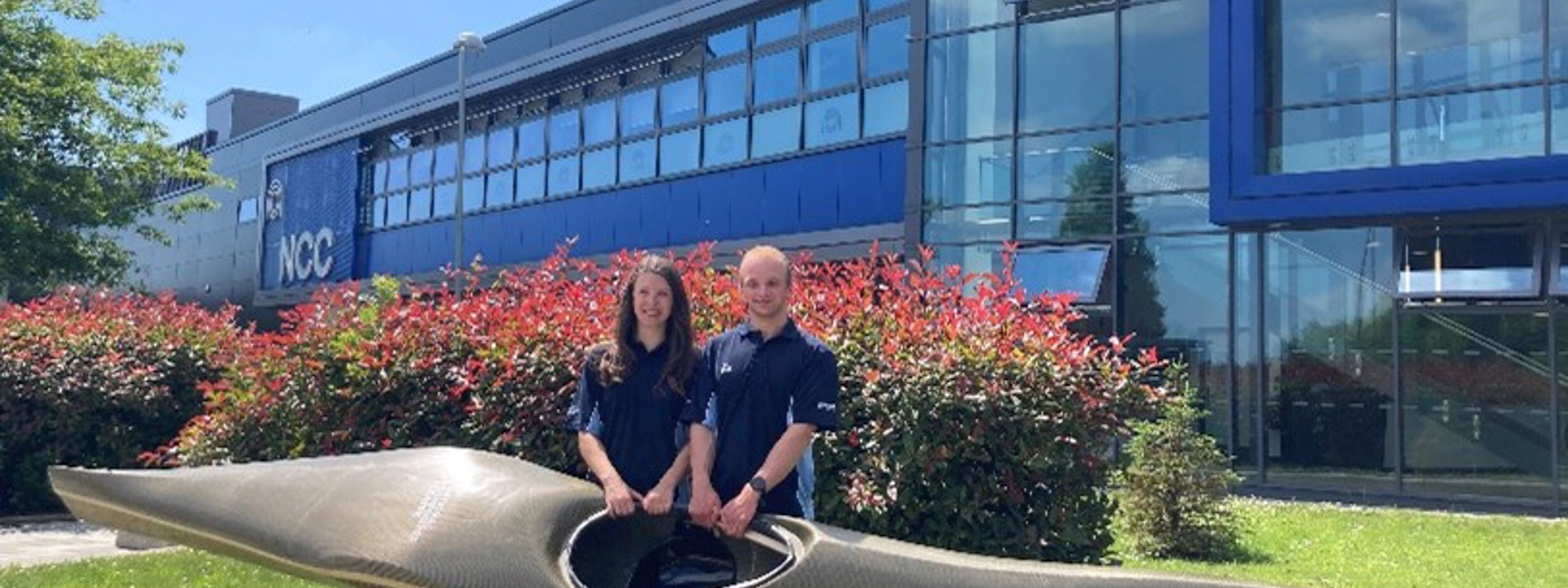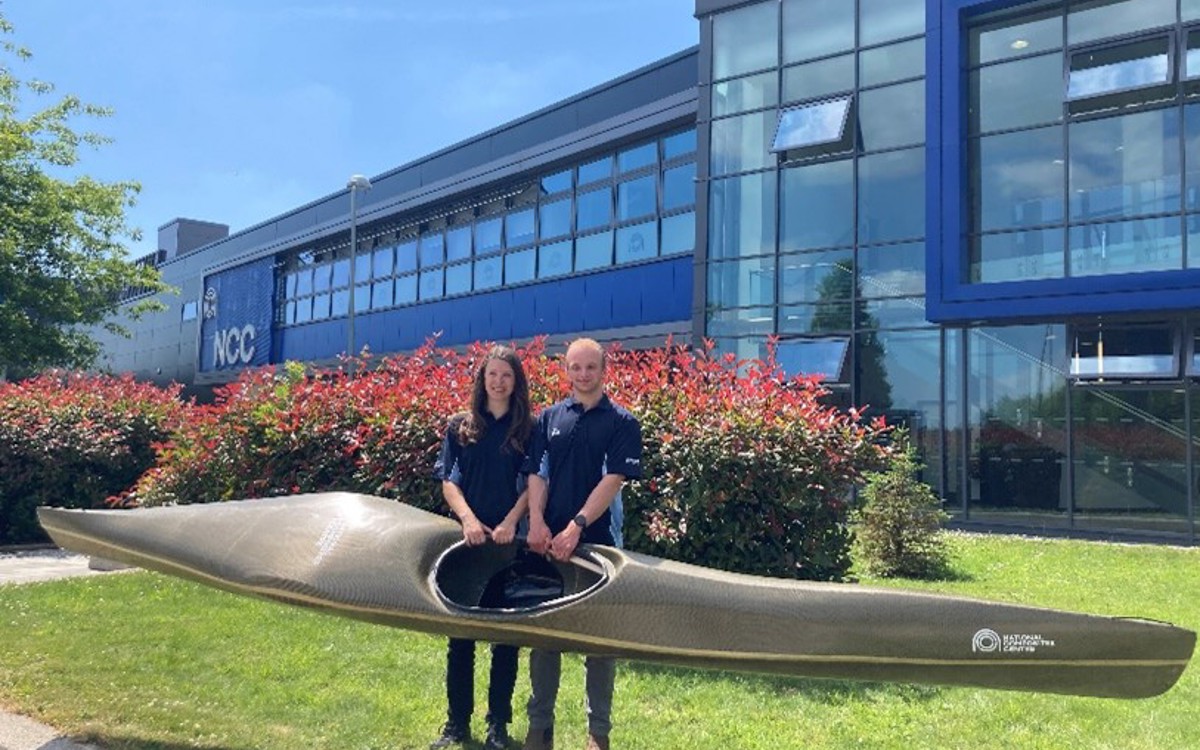
NCC wild water champion spearheads project for UK’s first sustainable kayak
A UK-first wild water kayak, made from sustainable composite materials, has been designed and manufactured by a team of 19 graduates, apprentices, and year-in-industry students from the National Composites Centre (NCC).
Jacob Holmes and Emma Burns, Graduate Research Engineers at the NCC, part of the High Value Manufacturing Catapult, were inspired by Jacob’s history of wild water racing to create a wild water kayak using more sustainable materials and tackle end-of-life composites challenges. Jacob has been selected for the senior GB team for five consecutive years and was ranked no.2 in the UK in 2021.
Jacob said: “The idea for the project came about after the rules for wild water racing kayak dimensions changed this year. There is now no minimum width, and whilst this development has been slow over decades, it is potentially set for rapid change. There are currently no white-water racing kayaks made in the UK and there is no end-of-life solution for them either. We thought this would be a great challenge for our team of young engineers to work together on.”

Composite-made wild water kayak
The team focused on new materials for the kayak that offer lower embedded CO₂, longer life and recyclability and selected Recyclamine® Technology from Aditya Birla Advanced Materials for the manufacturing process. The project provided the team the unique opportunity to develop processing knowledge and performance testing for new sustainable materials and tools, that increase composite end-of-life options and be deployed to future projects.
The final wild water kayak produced is of the same weight as current kayaks – 10.5kg, however has reduced the minimum width from 60cm to 53cm following the recent rule change. Following the successful completion of the kayak, Jacob will then test in wild water conditions and ascertain whether the new reduced width affects racing performance. If this is successfully tested, Jacob would then take the new kayak into racing conditions later in the year. The project team also plan to run recycling trials with the material and generate data on the recovered fibre and matrix to give confidence in secondary uses.
Emma Burns, who jointly led the project with Jacob, said: “Being able to see a project through from an idea to a completed product was really rewarding. Leading the project from the technical side, I gained insight and understanding into so many areas - from tooling to material selection, through to manufacture. I feel it has also formed stronger links within the early careers community at the NCC.”
Recyclamine® Technology
Aditya Birla Advanced Materials’ Recyclamine® Technology is a path-breaking innovation, which has enabled epoxy thermoset composites to become recyclable. Recyclamines are novel polyamine curing agents that contain specifically engineered cleavage points, which convert thermosetting epoxies into thermoplastics under specific set of conditions. Therefore helping achieve recyclability of thermosetting composites, as well as recovery & reuse of epoxy matrix and fibre reinforcements.
Recyclamine® is a platform chemistry that enables epoxy systems suitable for a wide array of applications and manufacturing methods. For this project, the part was manufactured by infusion process, for which the selected Recyclamine® epoxy system behaved in a similar way to the traditional non-recyclable epoxy.
Benefits of the Recyclamine® technology:
- Empowering a sustainable future by enabling a circular economy and closing of the loop
- Cutting edge performance in line with conventional epoxy systems
- Wide applications with systems for industries such as Wind, Automotive, Sports and Marine for composites manufacturing processes like infusion, lay-up, RTM, pultrusion, prepreg and filament winding
- Creating value through reuse of recovered material
- Adaptable to existing manufacturing processes
Life Cycle Analysis
This project also enabled the testing of new processes in order to conduct an effective Life Cycle Analysis. Material waste and energy consumption data was collected on the manufacturing instruction sheet, as operations were executed.
This provided an invaluable opportunity for the early careers team, Kate McClearn, a graduate at the NCC explained: “I was able to learn from the difference between what I had planned and what was carried out in practice, allowing me to optimise this process for future, and giving me guidance on how I can improve my manufacturing instruction writing.”
Hannah Swinbourne, another graduate from the project team, added: “I was able to conduct a Life Cycle Analysis, which I’ve never done before, covering everything from the process mapping, boundary setting, and data collection, through to finding out the Global Warming Potential values”.

